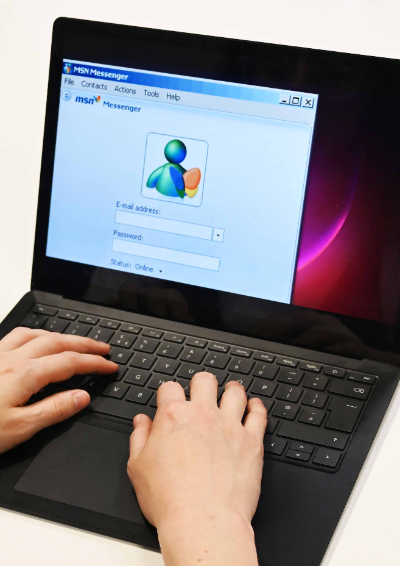Early AI chatbot
“It’s wonderful that SmarterChild sort of opened the Pandora’s Box. Unfortunately now, I feel like I have a certain amount of responsibility to share with the world: the good, the bad, and the ugly.”
SmarterChild co-founder Robert Hoffer, reflecting on his creation to TechCrunch in 2023.
 Before ChatGPT, Google Assistant, Siri and Alexa, there was Smarterchild. This was a chatbot that entertained, consoled and informed an entire generation of young people in the early 2000s through the MSN Messenger program. At its peak, it was speaking to over 250,000 users a day.
Before ChatGPT, Google Assistant, Siri and Alexa, there was Smarterchild. This was a chatbot that entertained, consoled and informed an entire generation of young people in the early 2000s through the MSN Messenger program. At its peak, it was speaking to over 250,000 users a day.
For many of us, this was our first encounter with artificial intelligence. The chatbot was so well received that it may have even inspired investors to fund Siri, which paved the way for other robot assistants. But unlike the AI bots of today, which tend to have unassuming demeanours and focus on getting things done, SmarterChild had a personality.
What made it so popular was its unique “humanness” - people could have arguments, hurl insults, practice debates or just find out last night’s football scores. Like a disgruntled friend, it would ask for an apology if you were mean and give you the silent treatment until you said sorry. It could access a wealth of information - developers ActiveBuddy reportedly licensed databases from the likes of IMDB, the Dewey Decimal System, and the Yellow Pages.
As the industry continues to innovate and push the boundaries of what’s possible with conversational AI, it must ensure these systems are not only intelligent, but also ethical, responsible and respectful of people's privacy. Supporting organisations to find this balance is an important part of the Information Commissioner’s Office’s work.